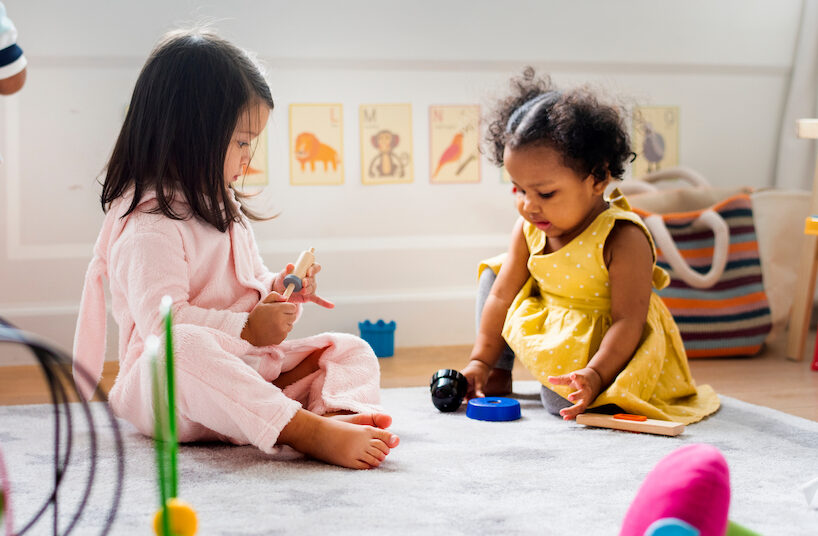A child’s first day of school can be a nerve-wracking experience. It’s hard to predict how a child will respond to such a big change in their lives. Even the most sociable child can be nervous about starting school and have a difficult time adapting.
Before the First Day
Talk to your child about school and read books about the classroom to help them prepare. Just letting them know what to expect can help them adjust.
Routine is very important for children. Starting a few days early can help reduce the anxiety children feel when starting school. Have them wake up at the same time they would for school or prepare what they plan to wear the next day. That way, once they have started school, waking up early or getting their school clothes ready will already be a familiar routine.
Showing them the location of their school could also help them prepare, as they will know where they are going on their big day.
The Morning

Don’t rush through the morning of their first day. Take your time getting your child prepared for starting school. If you’re not rushing through the morning, you’re not stressed about being late or hurrying your child through their breakfast. Your child feeds off of your mood, so if you’re not stressed, they’ll have less reason to be.
This is where the routine you practiced really helps! You and your child will know how to prepare and react in the morning because you have already been doing that in preparation for their big day.
Remember to stick to this routine as time goes on. Routine provides stability for children and helps curb their anxiety. You can learn more about children and anxiety from this video!
Dropping Them Off
Arrive early so your child can get used to their new environment. Remember that most teachers have seen nervous children before and often have a system for helping children adjust. Smile, tell them you’re proud of them, and let them know when you’ll be back to pick them up.

Beyond the First Day
Sometimes children are excited in the first weeks, but when the excitement has worn off, their nerves start acting up. It’s likely they won’t want to return to school after being excited to go initially. It’s important to be on top of those concerns.
Ask them questions about their day. The more specific the questions, the more likely you’ll understand how they are experiencing school. It can be hard for a child to express why they are happy or unhappy, but asking what they are learning, who they are playing with, and who they sit beside during lunch can help them express what makes them nervous as the school weeks continue.
You should also pay attention to their routine when getting ready. Are they excited and eager or are they taking their time?
Talk to your child’s teacher. They will notice if something is wrong in the classroom and can help give pointers if you feel your child is having a difficult time with starting school.
Remember! Keeping a routine is the best way to help reduce anxiety about starting school or be able to recognize signs of your child having a difficult time with the transition.


